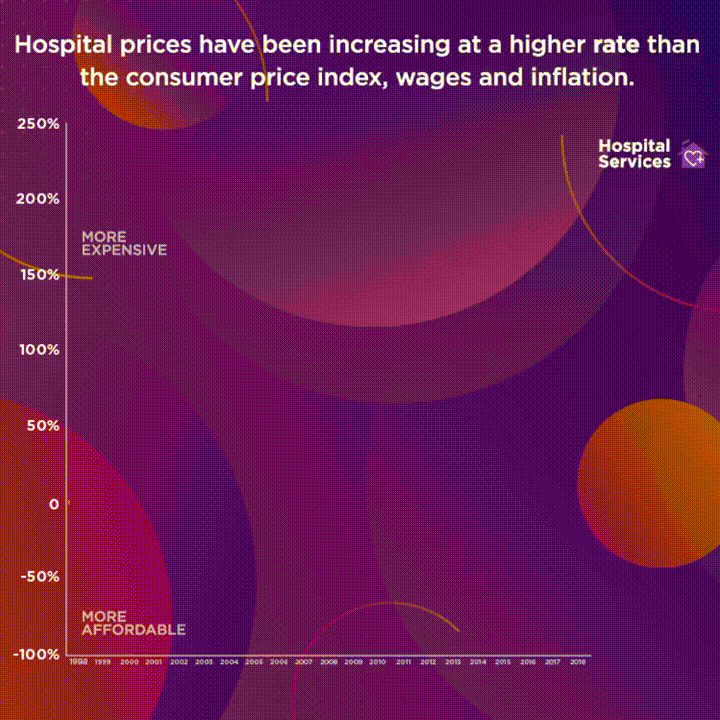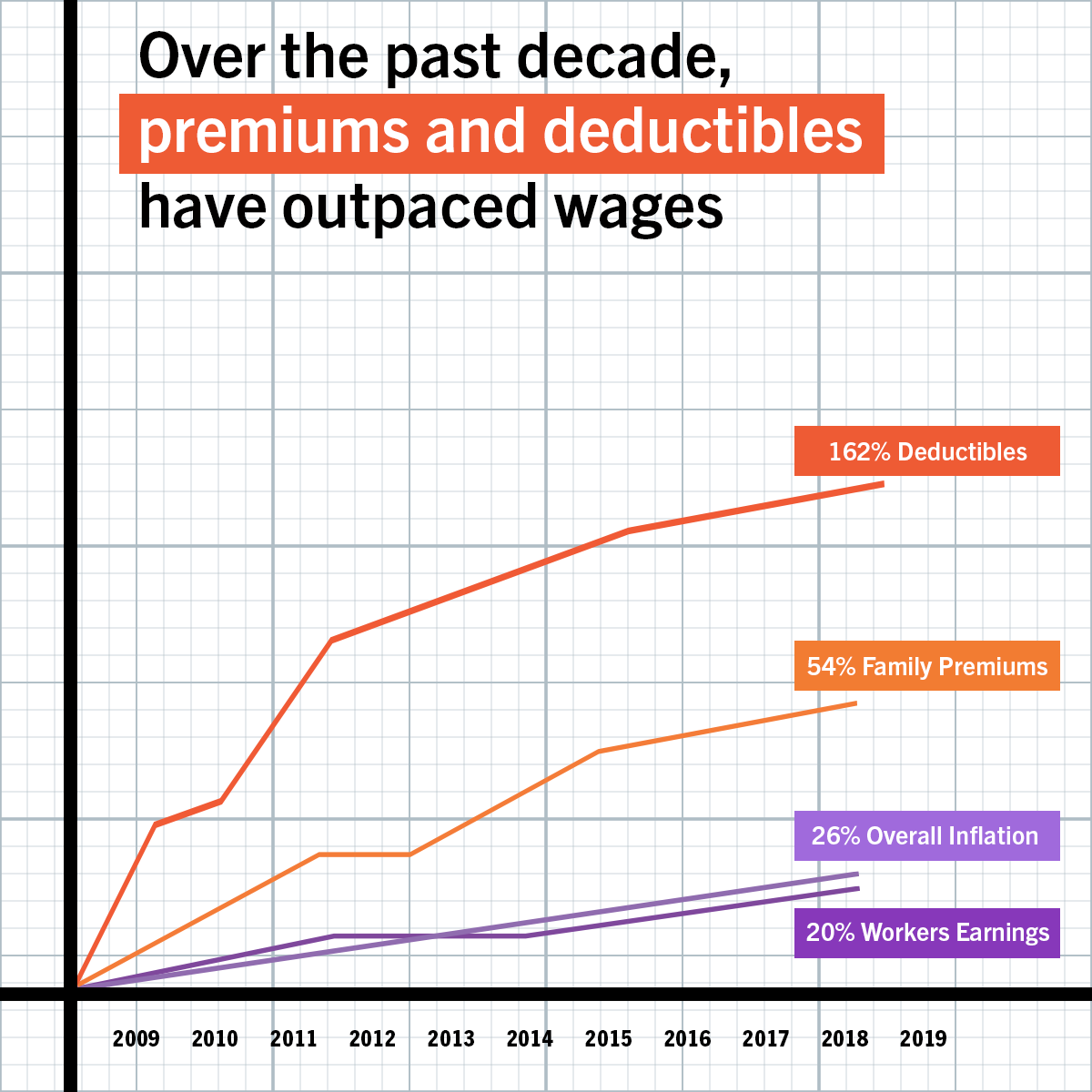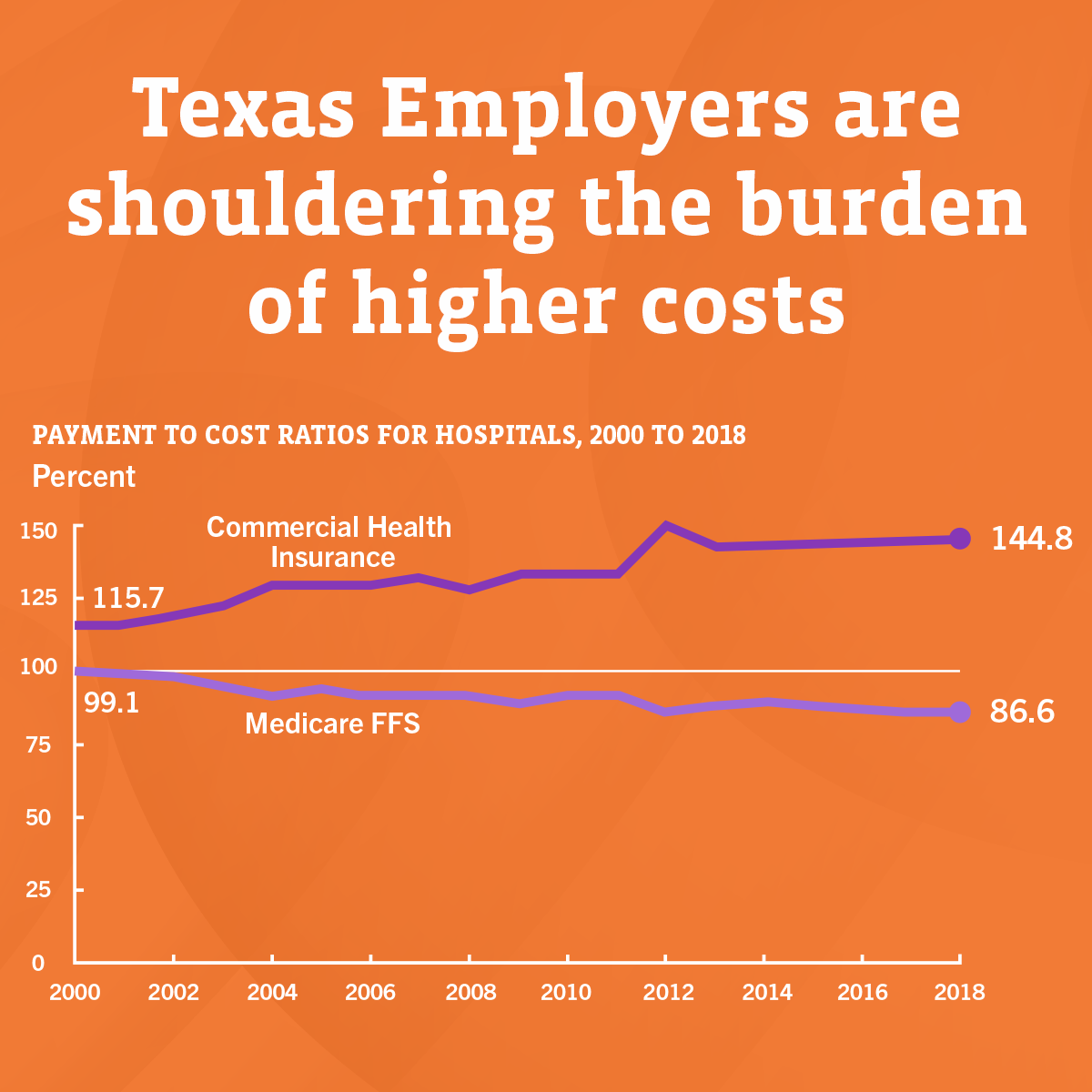
Healthcare Crisis
Texas employers and families are suffering at the hands of expensive and unsupportable healthcare. Large and small employers have tried to negotiate but have failed as no employer in consolidated hospital markets has enough consumers to influence price change. Now it’s time for Texas Legislators to act.
Healthcare is too expensive at the places where it matters the most.
Hospital Services
Primary Care Visits
Monthly Premiums
Texas employers and families are hurting.
Out-of-pocket Expenses
Out of pocket hospital costs have outpaced every other major sector of the economy, resulting in needless stress to families.
An FTC report found that merged health systems and the laws allowing them were likely to lessen competition substantially and lead to price increases and quality reductions for patients.
Hospital consolidation, anti-competitive billing practices and the existence of Certificate of Public Advantage laws as well as other legislative loopholes all contribute toward the continued rising cost out of pocket hospital costs.
Competition is the key to lowering cost of care.

Hospital Services
Studies have shown hospital consolidation to drive up prices and decrease quality of patient care.
Through consolidation, health systems gain market control and can increase prices. In Texas, the vast majority of hospital beds are within health systems, rather than independent hospitals. System hospitals in Texas generally have higher commercial prices and breakevens compared to independent hospitals.
In Texas, larger hospitals are also most profitable and smaller hospitals are less profitable. Compared to similarly sized hospitals across the United States, Texas hospitals have generated higher net profit margins. Since 2011, system hospitals in Texas have consistently increased their chargemaster rates, despite their operating costs being significantly lower and remaining stable.
Commercial breakeven is the reimbursement rate a hospital needs to receive from commercial payers to cover all its expenses for hospital inpatient and outpatient services, without profit. In Texas, independent hospitals have lower commercial breakeven than most major health systems. Systems also have the highest prices paid by commercial health plans.
Source: National Academy for State Health Policy

Monthly Premiums & Deductibles
Monthly premiums and cost have continued to rise despite employers attempts.
To keep getting the same level of care, Texas Employers are forced to pay more for their employee’s health insurance when compared to Medicare. On average an employer pays $14,000 per year for the average family.
Employers in Texas have tried everything from changing health plans, increasing deductibles and changing networks to lower their business and their employee’s healthcare costs.
It is time for legislators to act and pass sensible legislation that addresses the issues of hospital mergers and consolidation, anti-competitive billing and contracting practices.

WHY ATTEMPTS TO LOWER COSTS HAVE FAILED
Existing legislation provides “loopholes” that allows hospitals and health plans to inflate prices at the cost of consumers.
At the state legislature, Certificate of Public Advantage laws, provide merging hospitals with a “free pass” against antitrust challenges concerns that they would otherwise be subject to. While COPAs are often enacted with the intent of increasing access to care and lowering healthcare costs, there has been no evidence of them being effective in lowering cost of services for patients. Instead, COPAs contribute to the continued rising cost in care due to less competition in the market.
These anti-competitive contracting practices have been abused by hospitals and health plans leading to out-of-control healthcare costs.
